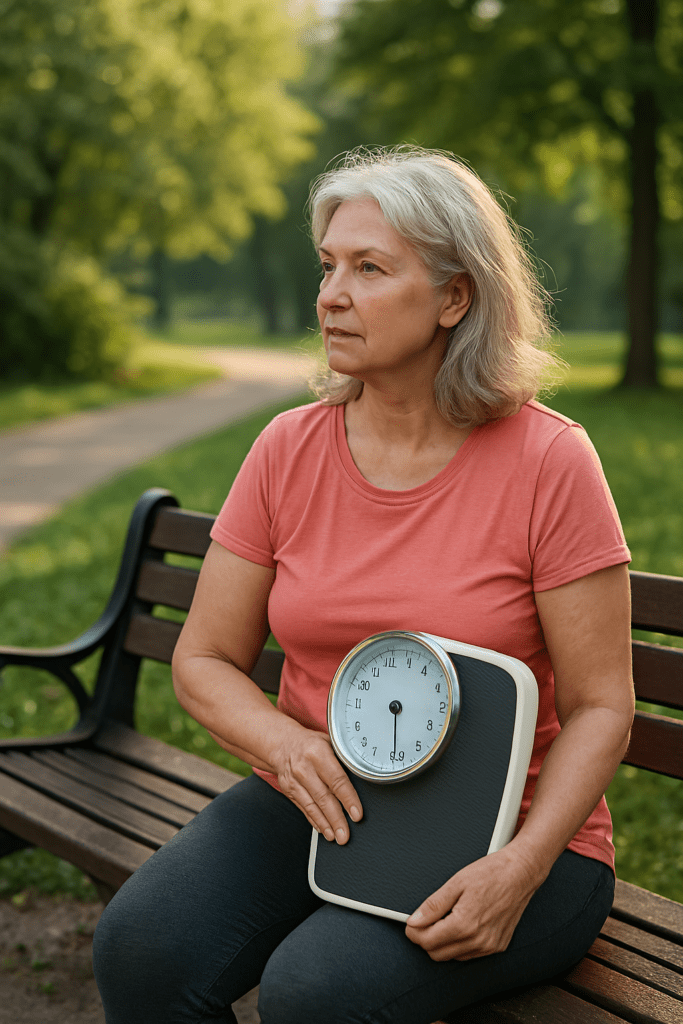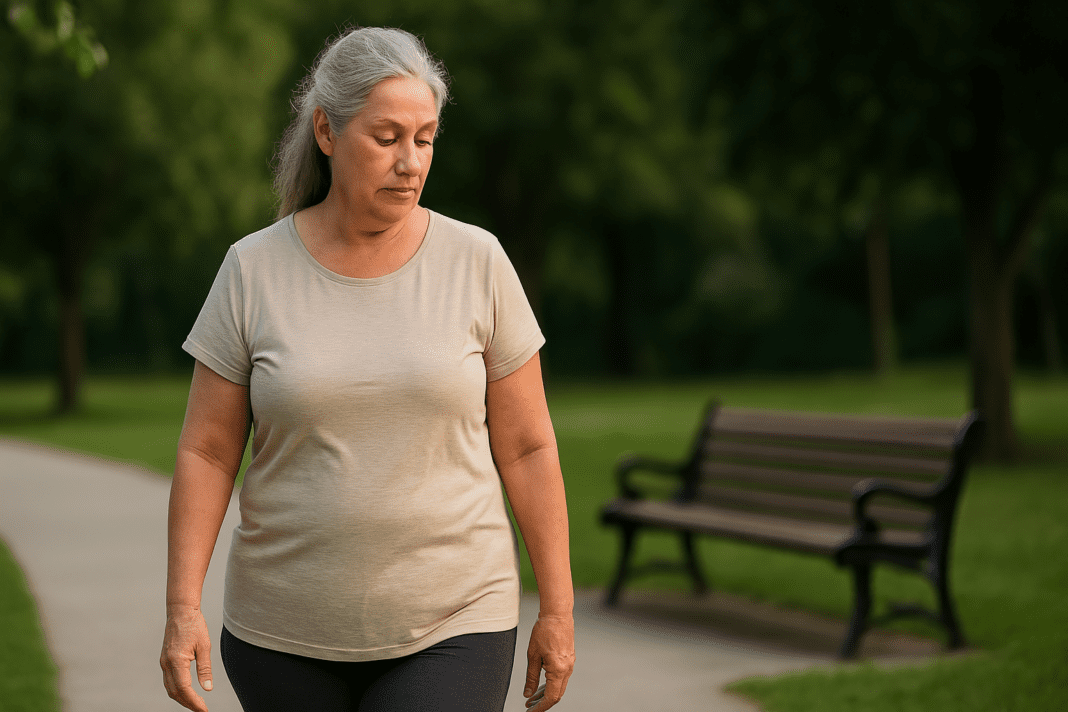As women age, the approach to weight loss becomes more complex due to physiological changes, hormonal fluctuations, and lifestyle adjustments. Women over 50 may find it increasingly challenging to lose weight, but that doesn’t mean it’s impossible. Understanding the best weight loss plans for women over 50 is crucial to achieving sustainable health and wellness in this stage of life. This article provides evidence-based, expert-backed strategies to help women navigate weight loss after fifty and reclaim a healthier, more vibrant lifestyle.
You may also like: Expert-Backed Weight Loss Tips for a Healthier Lifestyle: What You Need to Know for Long-Term Weight Control and Wellness
Understanding the Challenges of Weight Loss After 50
The process of losing weight after 50 for women often feels like a daunting task. As metabolism slows and hormonal changes like perimenopause and menopause take place, women may notice that their bodies store fat more easily, especially around the abdomen. The decline in estrogen, combined with age-related changes in muscle mass and bone density, can make traditional weight loss strategies less effective.
Additionally, stress and a busy lifestyle can increase cortisol levels, further promoting fat retention. Understanding these changes is key to devising a weight loss plan that is not only effective but also sustainable. For women over 50, focusing on metabolic health and adopting a holistic approach to diet, exercise, and sleep are essential.
Best Weight Loss Strategies for Women Over 50
To create an effective weight loss plan for women over 50, it’s crucial to emphasize strategies that work in harmony with the body’s evolving needs. Below, we explore some of the best approaches to weight loss for women over 50, all grounded in scientific research and expert recommendations.
1. Embrace a Balanced, Nutrient-Dense Diet
One of the most effective ways to lose weight after 50 is by adopting a balanced, nutrient-dense diet. As metabolism slows, it’s important to focus on foods that fuel the body efficiently without unnecessary calories. For women over 50, prioritizing protein-rich foods, healthy fats, and plenty of vegetables can help manage hunger, stabilize blood sugar levels, and support muscle mass.
Including lean proteins like chicken, fish, tofu, and legumes can help maintain and build muscle, which is crucial as muscle mass naturally declines with age. Fiber-rich foods like whole grains, fruits, and vegetables not only aid in digestion but also keep you feeling fuller for longer, helping to prevent overeating. In addition, reducing processed foods and excess sugar is key to managing weight and improving overall health.
2. Focus on Strength Training and Regular Exercise
For those wondering about the best way to lose weight after 50, incorporating strength training is crucial. Building lean muscle mass is one of the most effective ways to boost metabolism, especially as we age. Regular strength training exercises, such as weight lifting, resistance bands, or bodyweight exercises, can help improve muscle tone and increase calorie burn even at rest.
In addition to strength training, it’s important to engage in cardiovascular activities like walking, swimming, or cycling. These activities help improve heart health and burn calories, aiding in weight loss for women over 50. The combination of strength training and cardio exercises creates a balanced routine that maximizes fat loss while preserving lean muscle mass.
3. Prioritize Restorative Sleep
Adequate sleep is a cornerstone of any effective weight loss plan, especially for those over 50. Sleep deprivation can lead to hormonal imbalances, increased appetite, and poor decision-making when it comes to food choices. For women in this age group, disrupted sleep patterns due to menopause or other factors can make it even harder to lose weight.
To improve sleep quality, consider establishing a consistent bedtime routine, limiting caffeine intake in the afternoon, and reducing screen time before bed. Creating a cool, dark sleep environment can also help signal the body that it’s time to rest. If sleep disturbances persist, consulting a healthcare provider may be necessary to address underlying issues such as sleep apnea or hormonal imbalances.
4. Manage Stress and Cortisol Levels
Chronic stress can interfere with weight loss after 50, as it leads to elevated cortisol levels, which promote fat storage, particularly in the abdominal area. Finding ways to manage stress is an essential component of any weight loss strategy for women over 50. Techniques such as yoga, meditation, and mindfulness can help lower cortisol levels and improve emotional well-being.
Physical activities that engage the mind and body, like Tai Chi or gentle yoga, can also help reduce stress while improving flexibility and balance. Furthermore, building strong social connections and engaging in activities that bring joy can significantly reduce stress and contribute to weight loss.

The Best Weight Loss Plan for Women Over 50
Creating a personalized weight loss plan tailored to the unique needs of women over 50 is the key to success. A comprehensive approach that includes healthy eating, exercise, sleep, and stress management is essential. Here are some expert-backed tips to structure the best weight loss plan for women over 50:
1. Portion Control and Mindful Eating
As we age, the body requires fewer calories, and it becomes easier to gain weight if portion sizes aren’t managed carefully. Mindful eating practices can help you tune into your body’s hunger cues, preventing overeating. Taking the time to eat slowly, savor your food, and pay attention to satiety can significantly reduce the risk of consuming excess calories.
A great way to start practicing portion control is by using smaller plates or measuring out portions to avoid overeating. Also, try to avoid eating while distracted, such as while watching TV or working. This helps to create a healthier relationship with food, promoting weight loss after fifty without the need for restrictive diets.
2. Increase Physical Activity Gradually
While regular exercise is vital for weight loss after 55 female, it’s essential to start at a comfortable pace and gradually increase intensity. High-impact exercises may not be suitable for everyone, particularly for those with joint concerns. Instead, try starting with low-impact activities like brisk walking, swimming, or cycling.
Over time, as your fitness level improves, you can incorporate higher-intensity workouts like interval training or strength training. The goal is to build consistency and ensure that the routine is sustainable in the long term. Physical activity can help combat the loss of muscle mass and improve cardiovascular health, all while aiding in weight management.
3. Seek Support from a Health Professional
Seeking guidance from a healthcare provider or nutritionist who specializes in weight loss for women over 50 can significantly enhance the effectiveness of your weight loss plan. These professionals can help assess your individual health status, including hormone levels, metabolic rate, and overall wellness, ensuring that your plan is safe and personalized.
Furthermore, if weight loss efforts aren’t yielding results, a professional can help identify underlying issues such as thyroid imbalances or metabolic conditions that could be hindering progress. Consulting a doctor or dietitian is an important step in the weight loss journey, as it ensures a comprehensive, evidence-based approach to health.
Real-Life Examples of Successful Weight Loss After 50
Many women have successfully lost weight after 50 by following expert-backed strategies. For instance, Susan, a 58-year-old woman, struggled with weight gain after menopause but achieved significant weight loss by focusing on a nutrient-dense diet, incorporating strength training, and reducing stress through yoga. Over a year, she lost 25 pounds and felt more energized, proving that a balanced approach can lead to sustainable weight loss.
Another inspiring example is Linda, a 62-year-old woman who had difficulty losing weight despite numerous attempts at dieting. After consulting with a nutritionist, she adopted a personalized diet that included healthy fats, lean proteins, and fiber-rich foods, along with a commitment to daily walks and yoga sessions. Linda was able to lose 15 pounds within six months while improving her overall health, demonstrating that a holistic approach to weight loss after 50 can work.

Frequently Asked Questions (FAQ) about Weight Loss for Women Over 50
1. What is the best way to lose weight after 50?
The best way to lose weight after 50 for women involves a multifaceted approach that focuses on sustainable habits rather than quick fixes. As metabolism slows with age, it’s essential to focus on nutrient-dense foods, including lean proteins, healthy fats, and fiber-rich vegetables. Incorporating regular physical activity, such as strength training, helps maintain muscle mass and boosts metabolism. Moreover, ensuring adequate sleep and managing stress levels are crucial, as poor sleep and high stress can impede weight loss. For women over 50, taking a personalized approach with guidance from health professionals ensures a plan that works with the body’s changing needs.
2. How can women over 50 lose weight effectively while maintaining muscle mass?
Maintaining muscle mass is crucial when trying to lose weight over 50, as muscle burns more calories than fat. The key is to include strength training exercises in your routine, such as weight lifting or bodyweight exercises, at least two to three times a week. Additionally, consuming enough protein—approximately 1.2 to 2.0 grams per kilogram of body weight—helps preserve lean muscle tissue while promoting fat loss. Combining strength training with cardiovascular exercises like walking, swimming, or cycling enhances calorie burn and overall fitness. Staying consistent with these habits will not only support weight loss for women over 50 but also improve functional strength and overall health.
3. What are some practical diet tips for weight loss after fifty?
For women over 50, focusing on a balanced diet is critical for weight loss after fifty. Begin by reducing calorie intake without depriving your body of essential nutrients. Prioritize nutrient-dense, low-calorie foods like vegetables, lean proteins, and whole grains. Avoid processed sugars and excess salt, which can contribute to weight gain and other health problems. Additionally, smaller, more frequent meals throughout the day can help control hunger and keep metabolism steady. Managing portion sizes, particularly at dinner, can also be an effective way to ensure you’re not consuming more calories than you need.
4. How does hormonal change affect weight loss for women over 50?
Hormonal changes, particularly during menopause, can significantly affect weight loss after 55 female. The decline in estrogen levels can lead to an increase in belly fat, a slower metabolism, and muscle loss. To combat these changes, women over 50 should focus on strength training to preserve muscle mass and combat metabolic slowdown. Additionally, eating a balanced diet rich in fiber, healthy fats, and antioxidants can help manage inflammation and support hormonal balance. Consult a healthcare provider if hormonal imbalances are suspected, as they may be able to suggest targeted interventions or medications to aid weight loss.
5. Can stress management help with losing weight after 50?
Yes, managing stress is vital for successful weight loss after 50. High levels of stress increase cortisol, a hormone that promotes fat storage, especially around the abdomen. Incorporating stress-reducing practices like meditation, deep breathing, and mindfulness can help lower cortisol levels and prevent emotional eating. Furthermore, activities like yoga, tai chi, or even walking in nature can reduce stress and promote overall well-being, making it easier to stick to a weight loss plan. Prioritizing self-care and taking time for relaxation can enhance not only your mental health but also your physical weight loss efforts.
6. What are the best exercises for losing weight after 50?
The best exercises for losing weight after 50 combine cardiovascular activity with strength training. Cardiovascular exercises, such as brisk walking, cycling, swimming, or dancing, help burn calories and improve cardiovascular health. Strength training, on the other hand, helps preserve and build muscle mass, which naturally declines with age. Incorporating both types of exercise into a weekly routine provides a balanced approach to weight loss for women over 50. Additionally, flexibility and balance exercises, such as yoga or Pilates, are crucial for maintaining mobility and preventing injury as the body ages.
7. Is intermittent fasting effective for weight loss over 50?
Intermittent fasting can be an effective strategy for weight loss over 50, but it should be approached with caution. While some studies suggest that intermittent fasting can improve metabolic health and support weight loss, it may not be suitable for everyone. Women over 50 may experience hormonal fluctuations that could make fasting more difficult, especially if they have underlying health conditions. It’s important to listen to your body and consult a healthcare provider before starting any fasting regimen. If done correctly, intermittent fasting can help regulate insulin levels, promote fat loss, and improve overall health.
8. How can I maintain weight loss after 50 without gaining it back?
Maintaining weight loss after 50 is about adopting a sustainable, long-term approach to healthy living. To avoid regaining lost weight, focus on making gradual, lasting changes to your diet and exercise routine. This could include creating a balanced eating plan that you enjoy and can maintain long-term, staying consistent with physical activity, and practicing mindful eating. Additionally, staying accountable by tracking progress, joining support groups, or working with a dietitian can help keep you on track. Consistency and a positive mindset are key to maintaining weight loss after 50.
9. How can sleep quality impact weight loss for women over 50?
Sleep plays a crucial role in weight loss after fifty because poor sleep can disrupt hormonal balance and increase appetite-regulating hormones like ghrelin. Women over 50 often experience sleep disturbances, particularly during menopause, which can lead to weight gain or difficulty losing weight. To improve sleep quality, it’s important to establish a regular sleep routine, limit caffeine intake, and create a comfortable sleep environment. Additionally, practicing relaxation techniques before bed, such as deep breathing or gentle stretching, can help prepare the body for restful sleep. Adequate sleep supports weight loss by reducing cravings and allowing the body to recover and repair muscle tissue after exercise.
10. How can I get started with a weight loss plan after 50?
The best weight loss plan for women over 50 should be individualized and based on your specific needs and lifestyle. Start by setting realistic goals that focus on health and well-being rather than just weight loss. Incorporate a combination of healthy eating, regular exercise, stress management, and sufficient sleep into your daily routine. Begin with small, manageable changes—such as replacing processed snacks with fruits and vegetables or walking for 20 minutes a day—and gradually build from there. Seeking advice from a healthcare provider or dietitian can help ensure your plan is safe, effective, and aligned with your unique health requirements. By taking a thoughtful, balanced approach, you can start losing weight after 50 and enjoy a healthier, more active lifestyle.

Conclusion: Sustainable Health and Wellness After 50
Losing weight after 50 for women can be challenging, but with the right strategies, it is achievable. By adopting a nutrient-dense diet, incorporating strength training and cardio, managing stress, prioritizing sleep, and seeking professional guidance, women can achieve sustainable weight loss that supports long-term health and wellness. Remember, the key is consistency and patience—successful weight loss after fifty is not about quick fixes, but about creating lasting habits that improve overall well-being.
Incorporating these strategies into your lifestyle can help you feel more confident, energized, and healthier as you embrace the opportunities that come with aging. By focusing on wellness rather than just weight loss, you can build a strong foundation for health that will last for years to come.
healthy aging, menopause weight loss, metabolic slowdown, fat loss after 50, fitness for older women, muscle preservation in aging, post-menopause fitness, hormone balance and weight loss, sustainable weight loss, personalized weight loss plans, strength training for women over 50, weight management strategies, heart health after 50, maintaining lean muscle, healthy lifestyle changes, low-impact workouts, balanced nutrition for women over 50, healthy fats for weight loss, maintaining energy after 50, stress management techniques, mindful eating habits
Further Reading:
The 3 Best Diets for Women Over 50, According to Doctors and Dietitians
Losing Weight After 50 For Women: Diet, Exercise, And Weight Loss Tips
The 5 Best Diets for Women Over 50
Disclaimer
The information contained in this article is provided for general informational purposes only and is not intended to serve as medical, legal, or professional advice. While MedNewsPedia strives to present accurate, up-to-date, and reliable content, no warranty or guarantee, expressed or implied, is made regarding the completeness, accuracy, or adequacy of the information provided. Readers are strongly advised to seek the guidance of a qualified healthcare provider or other relevant professionals before acting on any information contained in this article. MedNewsPedia, its authors, editors, and contributors expressly disclaim any liability for any damages, losses, or consequences arising directly or indirectly from the use, interpretation, or reliance on any information presented herein. The views and opinions expressed in this article are those of the author(s) and do not necessarily reflect the official policies or positions of MedNewsPedia.


